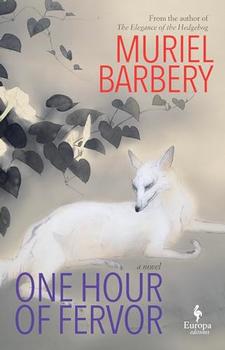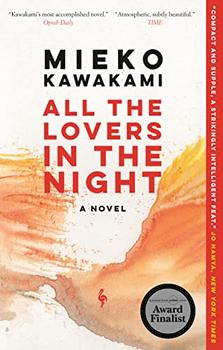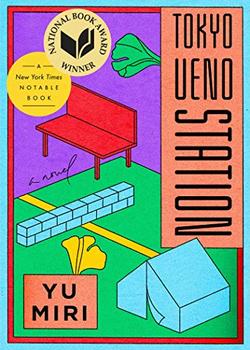Summary | Excerpt | Reviews | Beyond the book | Read-Alikes | Genres & Themes | Author Bio

Set during multiple decades across the turn of the 21st century, One Hour of Fervor follows Haru, a Japanese art dealer who becomes obsessed with the daughter he is forbidden to meet. Following a brief affair in the 1970s with Maud, an emotionally troubled French woman, he learns that he is to become a father. When he reaches out to Maud, however, she threatens to kill herself should he ever attempt to contact her or their child again. Duty bound to keep his promise, Haru remains in Japan but hires a private investigator and photographer to shadow his daughter in France, watching her grow up from the other side of the world, longing to know her and introduce her to her Japanese ancestry.
Haru is a fascinating character and his psychological response to the heartbreaking situation he finds himself in is very much the focus of the novel, rather than any explosive plot developments. In many ways, Haru, a wealthy man, has become an expert in cultivating precisely the existence he wants. He lives in a home he loves by the beautiful Kamo river, he has a successful career that allows him to surround himself with art and artists he admires, he embarks on a string of affairs and he has a vibrant social circle of beloved friends. The more time that passes, however, the clearer it becomes that there are two things Haru cannot control: life and death. The life of his daughter remains an intangible mystery, and be it through illness, accident or otherwise, each loss of a loved one he experiences makes him long all the more for a connection with her, before it proves too late.
The weight of inheritance and generational trauma hangs over the book at large. Having never been close to his own parents, Haru is torn between his desire to break this cycle and his fear of bringing greater emotional baggage into his daughter's world:
"Now, a father himself and perhaps, someday, a grandfather, he imagined the ancestor he, too, would become, and he saw his life inscribed in the entirety of time, where the same scene was repeated relentlessly – between his parents and himself, between himself and his daughter, and, quite soon perhaps, between his daughter and her own children – the same scene of silence and solitude."
Author Muriel Barbery regularly employs evocative yet unusual imagery, with phrases like "[…] he was looking at the flower in himself," and "[…] death stood before him in the guise of a garden." This poetic prose, sympathetically translated from the French by Alison Anderson, is beautiful but can feel alienating due to a lack of explanation for its unconventional linguistic choices. The heady, dreamlike quality of the writing makes sense, however, when viewed from the context of the narrative structure, which sees an aged Haru reflecting on his life from his deathbed. Once you find the rhythm of the prose, it becomes much easier to submit to its singular melancholic style and better appreciate the skill of its construction.
This style is put to particularly good use detailing the wonders of the Japanese landscape Haru adores, wishing he could share it with his daughter. Barbery paints vivid, transporting pictures with her words, reminding us that even in times of sadness, there is beauty to be found:
"On the ground, a thick, velvety, almost phosphorescent moss covered the roots and stones. Farther along was a clearing where thin bands of winter mist were rising from a pond. All around, the black branches of January scripted a secret poem. Haru went into the woods and strolled through shards of pale sunlight."
Understated yet deeply heartfelt, One Hour of Fervor is an ode to those forced to love in silence.
![]() This review
first ran in the February 21, 2024
issue of BookBrowse Recommends.
This review
first ran in the February 21, 2024
issue of BookBrowse Recommends.

If you liked One Hour of Fervor, try these:

by Mieko Kawakami
Published 2023
Bestselling author of Breasts and Eggs Mieko Kawakami invites readers back into her immediately recognizable fictional world with this new, extraordinary novel and demonstrates yet again why she is one of today's most uncategorizable, insightful, and talented novelists.

by Yu Miri
Published 2021
A surreal, devastating story of a homeless ghost who haunts one of Tokyo's busiest train stations.
Your guide toexceptional books
BookBrowse seeks out and recommends the best in contemporary fiction and nonfiction—books that not only engage and entertain but also deepen our understanding of ourselves and the world around us.